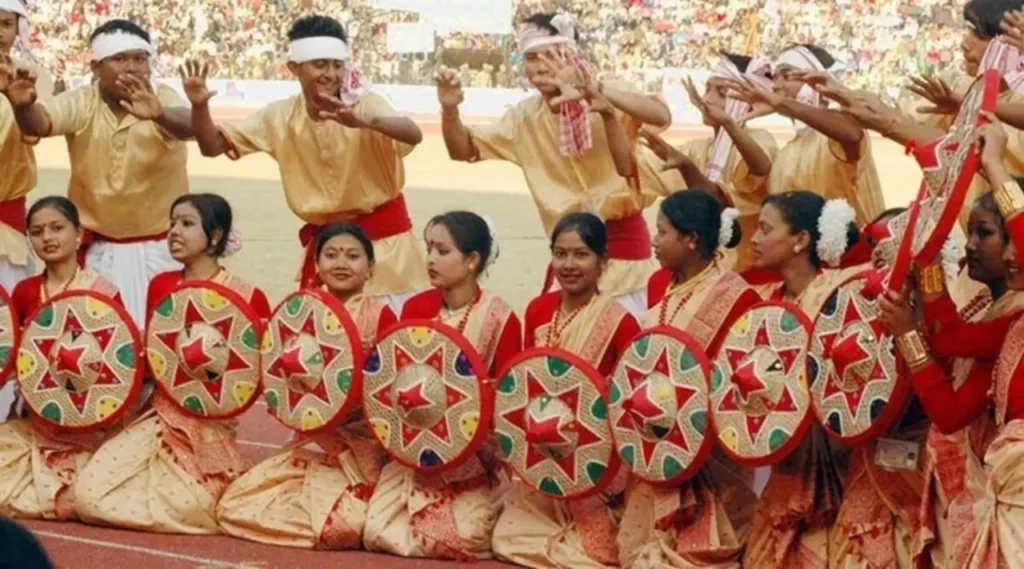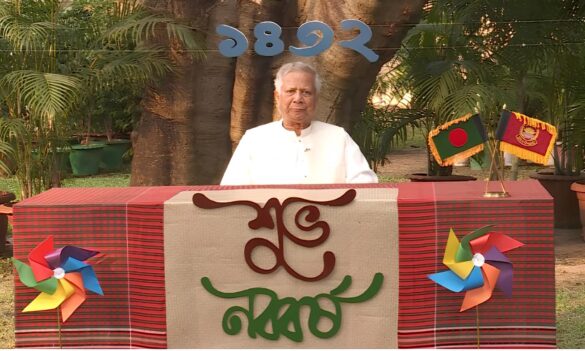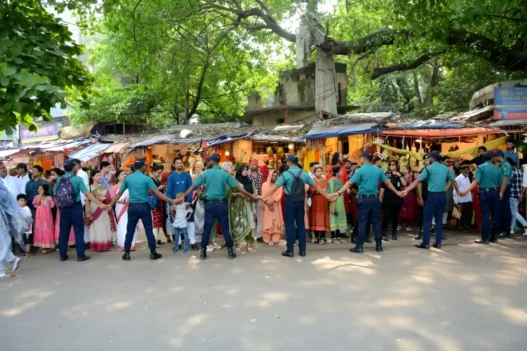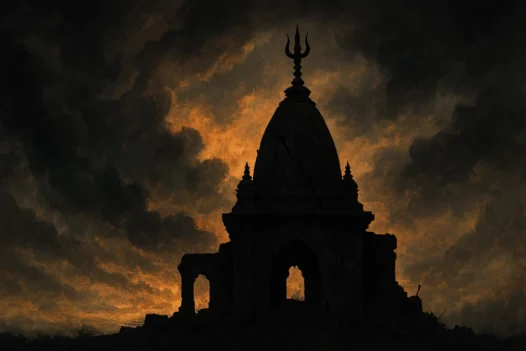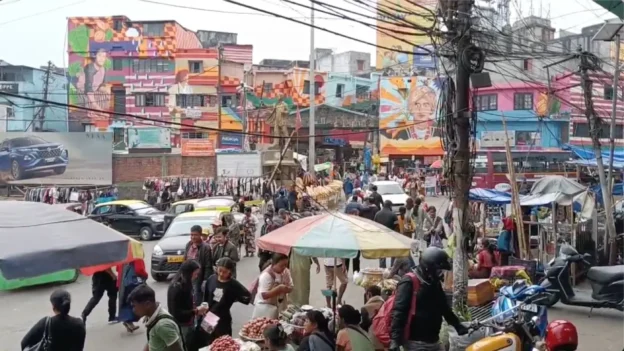New Year festivity grips Bangladesh, many parts of Bharat, Myanmar and other southeast Asian nations since the middle of April in the Gregorian calendar, where the inhabitants celebrate the first day with traditional rituals, colourful events and marry-making activities. The people of Bangladesh celebrate New Year 1432 with a joyous Pohela Boishakh (first day of Nababarsha that falls on 14 April). The Muslim majority south Asian nation hosts a series of colourful processions, where the participants in traditional attires adore music and visual artifacts to march on the streets, and other events greeting every dweller with good wishes. As usual a traditional procession (renamed as Barshabaran Ananda Shobhajatra) came out from the campus of Dhaka University in the capital city of Dhaka on the occasion of Nababarsha. It was followed by a number of cultural programs organized at Bangladesh Shilpakala Academy, Bangla Academy, Bangladesh Folk Art & Crafts Foundation premises and several other public places across the country.
Even though Bangladesh has standardized 14 April as the first day of Bengali Nababarsha, the people of West Bengal (and many other parts of Bharat) observe the day (Poila Boishakh) mostly on the next day. The Assamese people observed seven-day Bohag (Rongali) Bihu to welcome the same new year 1432 (first day of Assamese new year falling on 15 April) following the Bhaskarabda era calendar). The era reflects the date of ascension of Bhaskar Barma, the seventh-century ruler of the giant Kamrup kingdom. The State government recognized Bhaskarabda (a lunisolar chart) along with Saka and English calendars. Bohag Bihu, a cherished harvest festival, comprises seven days dedicated to various rituals, where it begins with Goru Bihu (dedicated to the cow and other livestock). The first day of Assamese calendar year is observed as Manuh (symbolizing seniors) Bihu and it follows with Gosai Bihu, Tatar Bihu, Nangol Bihu, Chenehi Bihu and Sera Bihu rituals.
President Droupadi Murmu and Prime Minister Narendra Modi greeted the people on the occasion of Bohag Bihu, Vaisakhi, Vishu, Poila Boishakh, Meshadi, Vaishakhadi and Puthandu Pirapu. Assam Governor Lakshman Prasad Acharya and State chief minister Himanta Biswa Sarma also wished the people on Goru Bihu that symbolises the importance of farming in the life of the people of the State. “Today, Assam observes one of its most sacred and meaningful traditions — Goru Bihu, the first and most spiritually significant day of the Rongali Bihu celebrations. This day is dedicated to the worship of the cow (Gomata), who holds a divine place in Sanatan Hindu Dharma as the eternal nurturer, a symbol of motherhood, sustenance, and purity,” said Guv Acharya.
India’s another neighbour Myanmar celebrates its five-day new year Thingyan festival from 13 April, where 17 April marks the beginning of new year 1386 in the Arakanese (Rakhine) calendar. The festival witnesses water-splashing rituals among young men and women as well as community distribution of flowers with fragrance and illumination of pagodas and monasteries across the Buddhist majority nation. However, the civil war and disaster-torn Myanmar has celebrated the festival with melancholy this time while paying respect to all the victims of circumstances. The people of Thailand celebrate Songkran to welcome Buddhist calendar year 2568. Also known as Thai Water Festival , always falls on 13 to 15 April, the festival has legends connecting Hindu God Indra, who is believed to come to earth for bathing Lord Buddha during the period. Similar vibrant springtime festivals are organized in Laos, Cambodia and some areas of China.
On the eve of Nababarsha, Professor Muhammad Yunus, chief adviser to the interim government in Dhaka, called upon countrymen to work together for creating a discrimination-free Bangladesh, where every citizen remains happy, peaceful and progressive. The lone Nobel laureate of Bangladesh, Prof Yunus sent a video message wishing everyone a joyous Pohela Boishakh and commented that the festival remains a day of harmony and great reunion. It helps the entire nation, irrespective of their religions, castes or creeds, to revitalize with a new spirit and commitment. Despite differences in beliefs and customs, the Hindus, Muslims, Buddhists, Christians, and the various communities living on the mountains, valleys and plans of Bangladesh are all part of one family, stated the octogenarian gentleman asserting that all citizens are united by a rich diversity of language, culture, and traditions.

